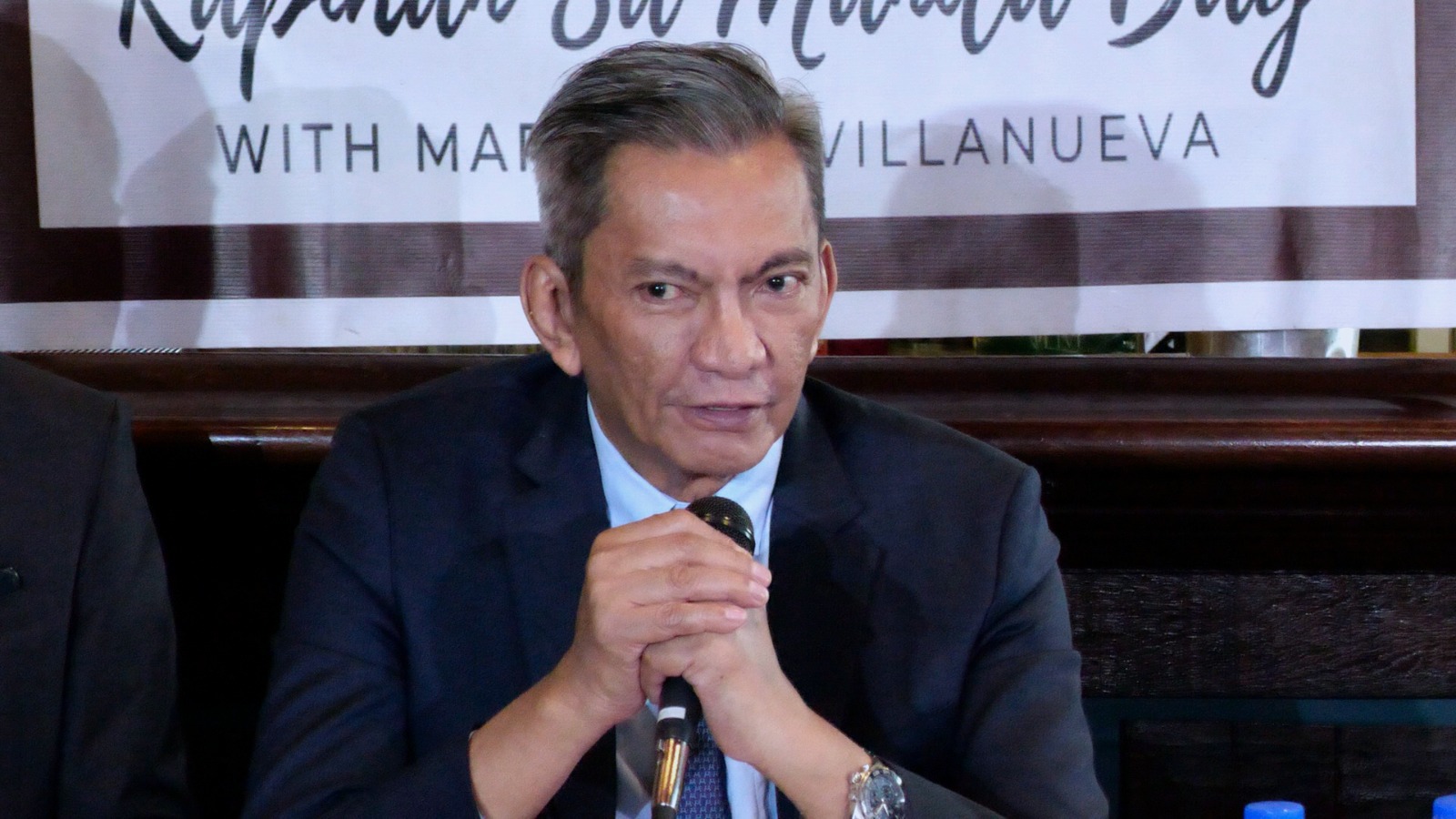Salceda says Pagcor is modernizing policies, enforcing rules on Pogo

Albay 2nd District Rep. Joey Salceda at Kapihan sa Manila Bay. INQUIRER PHOTO
MANILA, Philippines — The Philippine Amusement and Gaming Corporation (Pagcor) has been modernizing its policies and strictly enforcing rules and regulations related to Philippine Offshore Gaming Operations (Pogo), Albay 2nd District Rep. Joey Salceda said.
Salceda said this in a statement on Tuesday, amid different calls and proposals to ban Pogos due to alleged social issues and concerns that the games bring.
According to Salceda, there have been changes in how Pagcor regulates Pogos, which he believes has improved revenue collections.
“Ever since the appointment of Chairman Al Tengco, and later on, by President and CEO Amy Eisma, Pagcor has been modernizing its policies and practices,” he said.
“The licensing regulations on offshore gaming, now known as internet gaming licensees under Pagcor’s revised rules, have significantly improved revenue collections despite also reducing the number of total licensees,” he added.
Salceda, who chairs the House of Representatives committee on ways and means, said that if Pagcor is “choosier” with who can receive a Pogo license, then the country can do away with the supposed adverse effects of these games and eventually collect more revenues.
“In other words, we’re choosier about who we license, and we also collect more from each licensee,” he added.
According to data provided by Salceda, Pagcor’s collections from offshore gaming licensees (OGLs) improved to P5.1 billion from just 87 licensees, compared to just P2.99 billion from 158 licensees in 2022
These numbers, Salceda said, would show that a phase-out of Pogos would only be reasonable if it affected gaming operations involved in scrupulous activities.
“As far as a supposed ‘phase-out’ is concerned, that’s the kind of phase-out I fully support: You phase out the bad and mediocre licensees. You don’t phase the whole industry out. You enforce the law,” he noted.
There have been many calls to ban Pogos in the country due to the games being linked to different crimes like kidnapping, illegal detention, human trafficking, illegal labor practices, prostitution and harassment. Just earlier, the Makabayan bloc in the House filed House Bill (HB) No. 10525 or the proposed Anti-Pogo Act of 2024.
ACT Teachers party-list Rep. France Castro, who led the filing of the bill, said whatever gains promised or provided by Pogos were negated by the games’ social costs.
If enacted, the bill seeks to revoke all licenses granted to Pogos while totally banning future Pogos and stopping employment to companies doing these games.
“We call on our colleagues in Congress to swiftly approve this bill that will protect Filipino families and communities from the proliferation of crimes and social ills brought about by Pogos,” Castro said.
READ: House bill filed to ban Pogos, revoke licenses
But even before the Makabayan bloc filed its bill, the House committee on games and amusements had already approved two proposed measures seeking to ban Pogos — HB No. 5082 by Manila 6th District Rep. Bienvenido Abante Jr. and House Resolution No. 1197 from Cagayan de Oro City 2nd District Rep. Rufus Rodriguez.
READ: Solons back proposal to ban Pogos: Risks, dangers outweigh benefits
On Monday, Surigao del Norte 2nd District Rep. Robert Ace Barbers said there are fears that Pogo sites have a severe national security implication, as China may use the gaming locations to spy on the Philippines.
The lawmakers are referring to the questions raised at the Senate investigation on Pogos, which led to the discovery of suspended Bamban, Tarlac Mayor Alice Guo’s alleged links to the games in her municipality.
Last May 31, Guo was ordered preventively suspended pending an investigation after the Department of the Interior and Local Government (DILG) alleged that the local chief executive did not cancel or revoke the business permits issued to the Pogo because of her business interest in Baofu Land Development Inc.
The Pogo in Bamban, under Zun Yuan Technology, whose franchise was revoked, was situated in the compound owned by Baofu. Guo claims to have divested ownership of Baofu, but DILG believes the amount she divested it for — P2.5 million—was “grossly incongruent to her investment in Baufo, which is approximately eight hectares of land.”
But Salceda said that only 8,500 Pogo workers right now are Chinese individuals, noting that 65,000 of 100,000 indirect hires are Filipino citizens.
Furthermore, the Albay lawmaker said that it was actually Pagcor who revoked the franchise of Zun Yuan Technology — which, for Salceda, shows how serious Pagcor is in ensuring the legitimacy of Pogo operators.
“No one talks about it too much, but I think it deserves to be said: It was Pagcor who made the first move to catch the illegal operations. I just wish Pagcor would be more media savvy about [their accomplishments] because they’re one of the best performers in the government-corporate sector right now. And they deal with sensitive concerns that the public should know,” he said.
READ: NSC urged to tag Pogo as ‘national security threat’
“The Pagcor leadership has been very media-shy. But I will sing their unsung but deserved praises anyway: Pagcor has been enforcing rules on Pogos better, and they are turning the sector into an industry that creates more jobs for Filipinos and no longer relies exclusively on Chinese demand or labor,” he added.